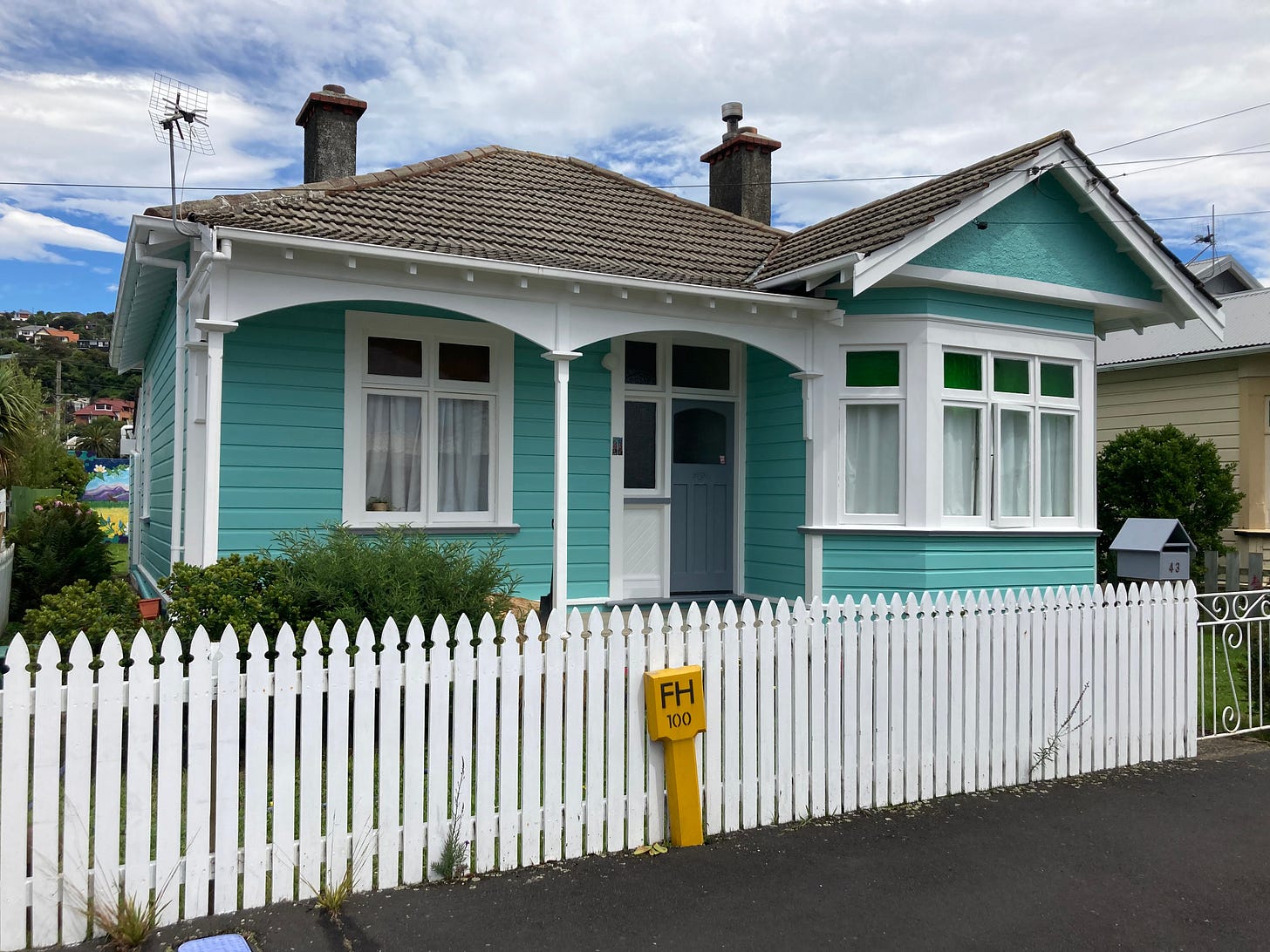It is a cute wee villa, isn’t it?
A Dunedin couple decided to sell this Forbury house, basically because they did not want to own a rental, preferring to do-up their house they were living in while paying some of their other mortgage off.
It is shaping-up as a classic Kiwi home ownership story of a couple making the best of their situation (and apologies to those shut out of the booming Dunedin property market).
But it is not a classic Kiwi home ownership story of a couple making the best of their situation. Not. At. All.
Don’t get me wrong, they worked hard. But their bank had other ideas about their money.
But first, the facts.
Michael Bennett and his wife Claire made a profit of $300,000 from selling that Forbury property.
But their plans to use some of that money to renovate their home received a setback when they heard from their bank, Westpac.
Claire with Mike Bennett. Photo: Supplied
Because of their change in circumstances – he had changed jobs while his wife was studying – the bank advised it was effectively taking ‘a chunk of the proceeds,’ Bennett said.
‘‘We hadn't signed any paperwork . . . it was just done.’’
That ‘chunk’ amounted to about $150,000, or half the profit of the Forbury home once its mortgage was cleared.
The bank vaguely cited recent Government changes for that decision, presumably part of the Credit Contract and Consumer Finance Act, Bennett said.
That legislation was designed to protect vulnerable people from unscrupulous lower-tier lenders.
But conversely it has led to a plethora of stories highlighting vague interpretations of that law, i.e. couple denied mortgage because of their love of takeaways.
The couple consulted their mortgage broker, who remained confident the bank's move would be reversed.
However, when the lawyer sent through the paperwork at settlement, it showed nothing had changed.
That led to the bank taking about half of that $300,000 profit to pay some of their other mortgage, which was re-fixed in November 2021.
Mike Bennett and Claire. Photo: Supplied
Bennett, who had recently started a new job as a commissioned-based salesman, said that mortgage was re-fixed with the expectation that the couple would sell their Forbury property.
At that time their home had a mortgage of $355,00, while their rental had $155,000.
The couple had planned to renovate their home, including the kitchen and bathroom, while Rye finished her Masters degree.
The couple also planned wanted to re-fix their mortgage, and “at that point we were going to pay a minimum of $100,000 off the mortgage’’.
As it stands, their mortgage - minus the profit from the sale - was now about $210,000.
Bennett acknowledged that the lower mortgage had put them in a ‘‘better position’’.
But he remained appalled that the bank offered no consultation on the move, and later cited government policy.
‘‘If they had taken the time to basically walk us through what the benefits were, then it might be a very different reaction from us.’’
Bennett questioned where this bank direction had come from, given they hadn’t applied for new lending.
And in a further twist, the bank offered to potentially loan the couple more money - once Bennett had been in his new job for a few more months.
A Westpac spokeswoman said as part of the bank's responsible lending policy, a customer with multiple mortgaged properties may not get to keep all the proceeds from the sale of a property.
“This approach has been standard for many years, and aims to ensure remaining lending remains affordable and safely structured for the customer.’’
That policy pre-dated changes to the Credit Contract and Consumer Finance Act which came into effect in December.
The only impact those changes have made in these situations was enhanced emphasis on the affordability of any residual debt, she said.
Bennett told Stuff he was told multiple times the move was because of the new legislation.
The bank acknowledged that after the house sold, one of their team members gave conflicting advice about what would happen with the proceeds of the sale, but that was corrected the next day, she said.
Bennett said the bank's explanation did not explain how it was seemingly fine with the existing levels of lending, but then wanted to reduce it by almost half. He remained frustrated by the lack of consultation from the bank.
Bennett said their experience served as a reminder for those in the fortunate position of selling a second property, that any profit maybe directed back to any mortgage.
This week I sent off my eldest son to high school. It is very pleasing to hear his school has banned the use of phones on school grounds, citing concerns over screen time and cyber bullying.
It comes as I looked at my own daily mobile use, and feel a digital detox is required.
But then I opened my Chinese fortune cookie, and immediately had to upload this to Instagram.
Here is my Tweet of the Week


Here is a great new track from Laney Blue, which is also top of the (always excellent) R1 top 11.
Have a great week, and if you have a tip please email me at hamish.mcneilly@stuff.co.nz








That's pretty appalling. What if they were selling because they needed the proceeds to finance urgent medical treatment? Anything really? It's their choice! This hits it on the head: "the bank's explanation did not explain how it was seemingly fine with the existing levels of lending, but then wanted to reduce it by almost half." If you're on a fixed rate, you can't just pay off chunks if you want to, not without a penalty. But it's fine for the bank to take YOUR money and do this? How is this not a form of theft? When they have not defaulted on any payments?!
Mike's beard is incredible 👏